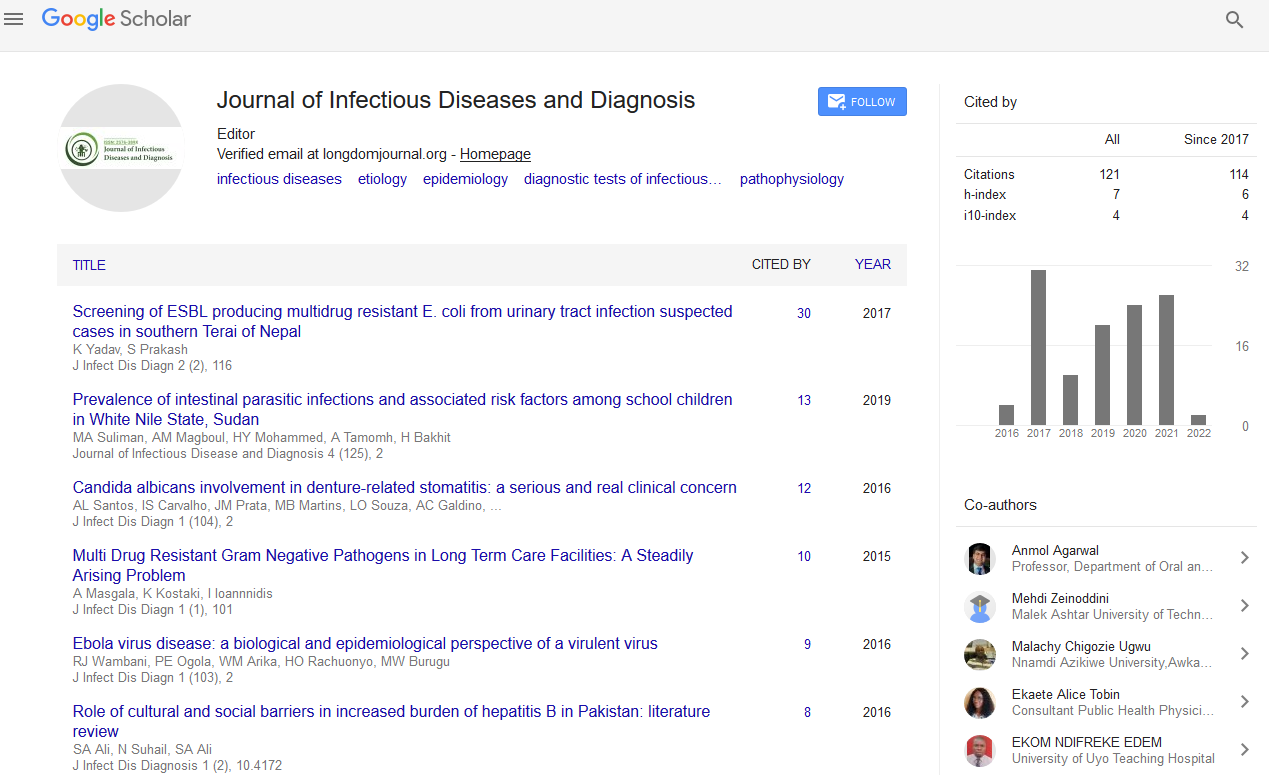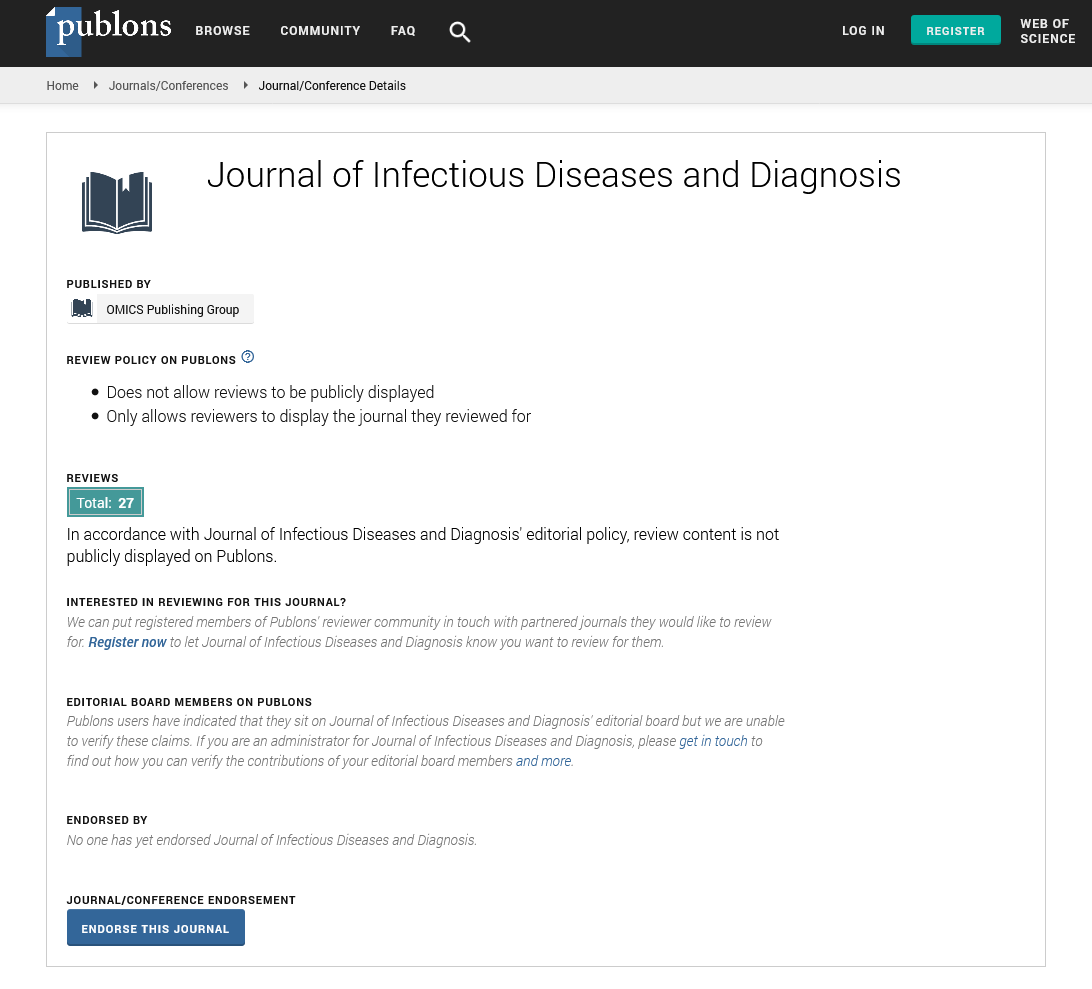Indexed In
- RefSeek
- Hamdard University
- EBSCO A-Z
- Publons
- Euro Pub
- Google Scholar
Useful Links
Share This Page
Journal Flyer

Open Access Journals
- Agri and Aquaculture
- Biochemistry
- Bioinformatics & Systems Biology
- Business & Management
- Chemistry
- Clinical Sciences
- Engineering
- Food & Nutrition
- General Science
- Genetics & Molecular Biology
- Immunology & Microbiology
- Medical Sciences
- Neuroscience & Psychology
- Nursing & Health Care
- Pharmaceutical Sciences
Abstract
Perceived Risk of Contracting HIV/AIDS; Chagga Wives Living in Separately from their Husbands; Rural Tanzania
Perry M Cyril*, Eleanor Holroyd and Agnes C Msoka
Objective: To explore the experience of tribal wives who live in separate locations from their husband’s and their perceptions of HIV risk in Moshi rural, Tanzania
Methods: Qualitative descriptive approach was used, drawing on female spouses who were purposively sampled by ages and socio-economic characteristics. Ten homogenous focus group discussions were conducted with a total population of 60 female spouses. The data were analyzed within and across the focus groups using thematic analysis.
Results: These wives' occupations included home wives, small scale farmers, and entrepreneurs, were being mostly Christians, with a primary school level of educational completion. The data is grouped under two majors themes; reasons for and effect of living far apart and perceptions of HIV risks Sub-themes were; married but the husbands' career means we live far apart, wife left in the village taking care of children, elderly, and coffee farms, male spouses lacked the feeling of being settled in the rural area, frequent visits “saved couples” living separately, drivers of long safari trucks prone to HIV transmission, lack of trust in the sexual safety of their marriage.
Conclusion: Employment demands of their husband’s occupation were the main reasons that caused these wives to live separately from their husbands. However, these relocations were seen to increase these wives' perceptions of their risk of contracting HIV infection. This was seen as attributed to promoting more opportunities for husbands to engage in extramarital relationships, and so break down trust in their marriages and offer little protection from HIV.
It is recommended that government policies enable married couples to work together in the same location by providing employment subsidies and subsidized family housing to promote family unity. Moreover, the Tanzanian Ministry of Education should collaborate with the Ministry of Culture to address specific tribal beliefs about Chagga men’s imperatives for occupational mobility and long-distance marriage relationships
Published Date: 2021-05-25; Received Date: 2021-05-04


